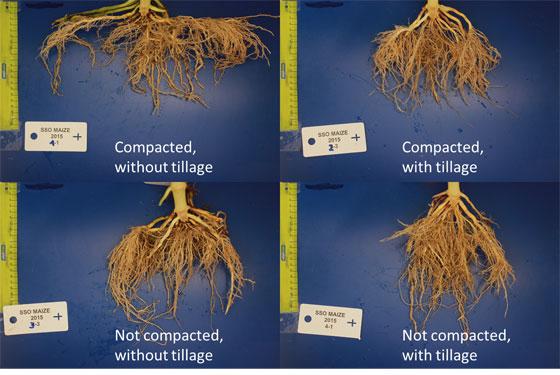Conclusion of the project "Soil compaction"

The regeneration of compacted soil is a slow process. This shows the long-term field trial "Soil Structure Observatory".
The project "Soil compaction" led by Thomas Keller, Agroscope, shows the consequences of soil compaction: reduced soil porosity and transport capacity of water and gases as well as greater penetration resistance. This has a direct impact on the development of roots (less roots, roots that penetrate less deeply and changed root anatomy) and the yield of the plants. Compaction happens in seconds but regeneration takes generations. The costs of soil compaction occur after the soil compaction and accumulate over the years till the soil is regenerated.
Roots and earthworms make an important contribution to the porosity of soil. The team calculated how much energy is required for the growth of roots and the movement of earthworms, depending on soil properties. Earthworms use a considerable part of the organically bound carbon that is added to the soil annually as their source of energy for moving through the soil.
- Project page
- Executive Stakeholder Summary (available in German or French only) ()
- Soil Structure Observatory
